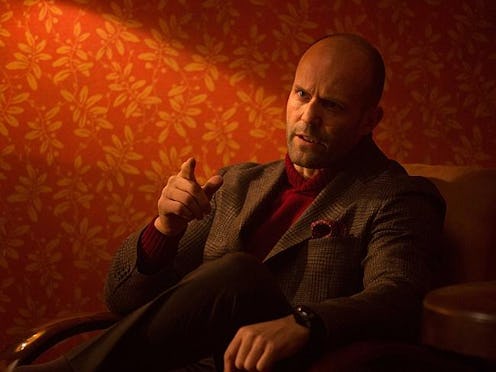Entertainment
Jason Statham Is The Best Part Of 'Spy'

If director Paul Feig has one particular strong suit, it’s the ability to mine his actors for the very best comedy they can muster. Feig and Melissa McCarthy have been a truly effective comedic team long before Spy, and have had no doubt since Neighbors that Rose Byrne was capable of handling herself in any comic forum. But the real favorite here turns out to be Jason Statham, a pleasant surprise as McCarthy’s vehemently unruly secret agent colleague and professional adversary. The volume of Spy’s Statham-induced laughs comes not simply from his thoroughfare of impressive verbal and physical acrobatics, nor from the surprise factor attached thereto. It’s the tacit recognition that everything Statham is doing onscreen in Spy is basically a kick in the pants to everything he’s ever done onscreen before.
While Spy is not saddled with the overt discussions of chauvinism that line Feig’s prior female-led action comedy The Heat, it certainly has its mind on fostering a progressive vision. As its main character, McCarthy’s fledgling field agent Susan Cooper, is shown to ascend to action hero glory despite her kooky, schlubby, anxiety-prone demeanor, the traditionally hyper-competent alpha male types who surround her are undressed to reveal a wealth more ineptitude than modern action cinema has been willing to cop to.
We see this in Jude Law, the relentlessly debonair James Bond type who, though highly skilled and generally well meaning, is weighted down by a comically obvious lack of self-awareness. Reflections on Agent 007 return when we meet Peter Serafinowicz, who ups the ante on the sort of lechery that smooth, British-accented Bond can usually pull off with class (but that we’d all be wise to recognize as duly creepy, as it is portrayed here). Best of all is the character handled by Statham: a parody not of some distant archetype, but of his own personal history of playing grimacing, bravado-laden, virtually superhuman thugs.
Statham’s character Rick Ford is the first to condemn the notion that Cooper can handle herself on assignment. He challenges her competency by rattling off a carousel of increasingly absurd claims of his own badassery — that he’s ingested every type of poison known to man (at once), that he reattached his completely severed arm using only his other arm, so on and so forth — at every step of the way, staking the value in his presence on the fact that he can handle any task, no matter how brutal or psychotic.
Essentially, this is Statham poking fun at his filmography to date. The British actor has spent his past 15 years proving he can hold his own on camera by way of extensive action contrivances, outlandish tests of virility, and general upholstery of the thickest helping of alpha masculinity since the original True Grit. While his craven devotion to dusty bravado has retained no shortage of public and industrial celebration — he did, after all, play the central villainous role in Furious 7 — it is nonetheless a pattern that Spy, Feig, and even Statham seem to feel justified in calling out for its abject ridiculousness.
As Feig’s mission is to take back all leagues of cinema for female performers and viewers, he devotes characters like Ford to tearing apart the noxious standards that male-led cinema has fostered thus far. Characters like Ford, and the Statham roles that have lain precedent for him, are reckless, stupid, counterintuitive, and —if you’re willing to free yourself from the inscrutable preciousness attached so frequently to images of masculinity — rather hilarious. That Feig is up for the gambit of deconstructing this ever-present trope helps to make Spy a fun and thoughtful upgrade of its genre; that Statham himself is in on the joke makes the gag an absolute riot.
Images: 20th Century Fox